A rehearsal for war: Volodymyr Zelenskiy’s path from comic to symbol of courage
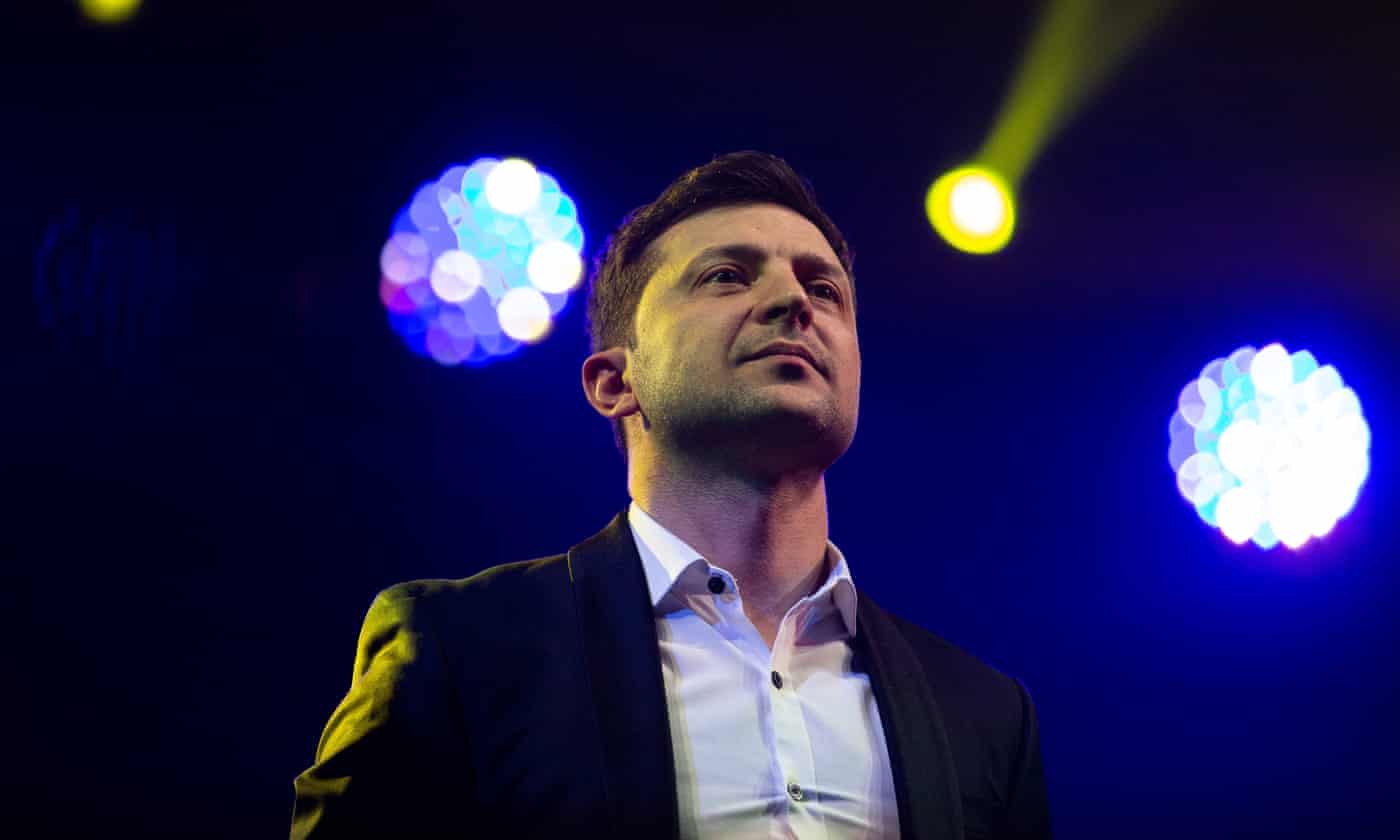
Volodymyr Zelenskiy in March 2019, weeks before becoming Ukraine’s president. Photograph: Bloomberg/Getty
Last modified on Wed 2 Mar 2022 04.10 EST
As the president of Ukraine, his defiance has made him a hero across the world. Could his success as a politician lie in his years as an entertainer?
"Hugh Bonneville was as surprised as anyone this week to learn of the extent of the talents of the Ukrainian president, Volodymyr Zelenskiy. “Until today,” he tweeted, “I had no idea who provided the voice of Paddington Bear in Ukraine.”
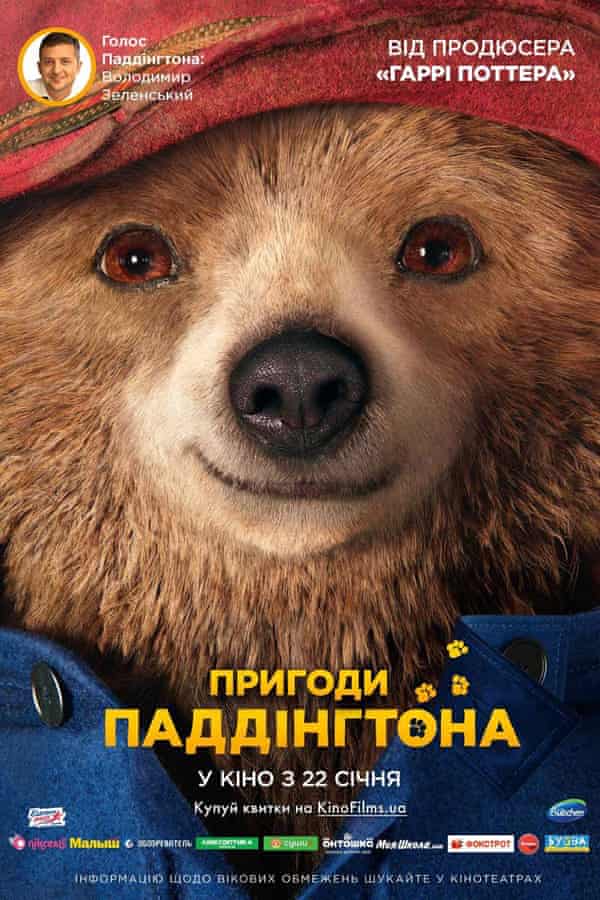 But there is plenty about Zelenskiy’s showbiz career that has been underestimated. When Zelenskiy was elected in April 2019, at the age of 41, the Russian commentator Sergey Parkhomenko said: “He is weak, he does not have a religion, he does not have a nationality.” It was meant as a criticism, even though all these reasons were precisely why people had voted for Zelenskiy. He is not intimidating. He does not come from a political background. He is a Russian speaker from the centre of the country. But, most of all, to Ukrainians, he was recognisable and he was funny. That nice guy off that TV show Servant of the People. You know, the one where the geeky history teacher becomes the president overnight. The Paddington voice guy.
But there is plenty about Zelenskiy’s showbiz career that has been underestimated. When Zelenskiy was elected in April 2019, at the age of 41, the Russian commentator Sergey Parkhomenko said: “He is weak, he does not have a religion, he does not have a nationality.” It was meant as a criticism, even though all these reasons were precisely why people had voted for Zelenskiy. He is not intimidating. He does not come from a political background. He is a Russian speaker from the centre of the country. But, most of all, to Ukrainians, he was recognisable and he was funny. That nice guy off that TV show Servant of the People. You know, the one where the geeky history teacher becomes the president overnight. The Paddington voice guy.
Outside the Russian-speaking world, you wouldn’t have known any of this. You probably wouldn’t even have heard of the TV show, even though it was eventually snapped up by Netflix. (It is now available on YouTube with English subtitles.) Beyond Ukraine, until last week, he was simply referred to as “a comedian who became president”. Initial coverage of his landslide victory – in which he won 73.2% of the vote – was derisory. What were the Ukrainians thinking? Who is this guy anyway? He is hardly Ronald Reagan. What a joke.
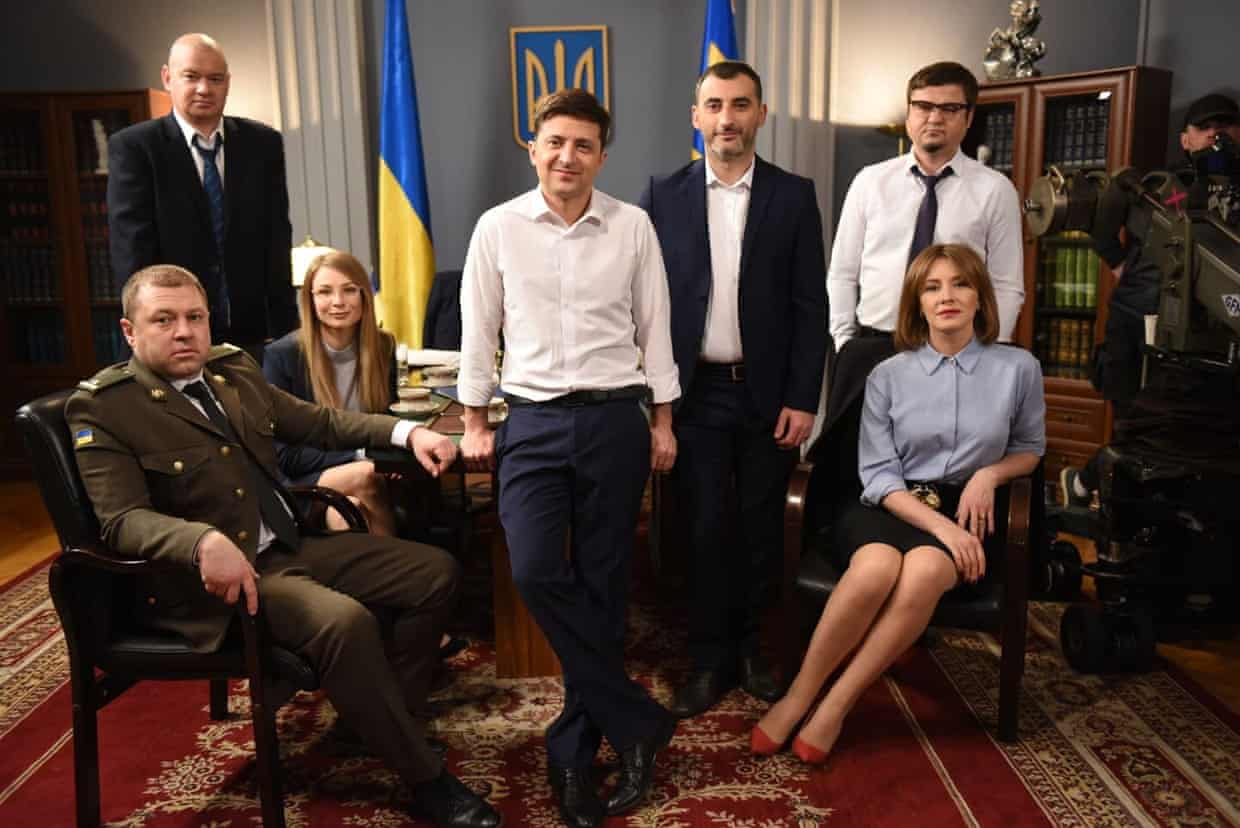
But the word “comedian” is misleading. It suggests someone who is a) not serious and b) a solo performer. Zelenskiy is neither of these things. He has never been a standup. The tradition of “monologue comedy” is fairly new in post-Soviet countries. (Perhaps the only post-Soviet standup known outside Russia or Ukraine is St Petersburg-based Igor Meerson, who performs in Russian and English and has supported Eddie Izzard on tour.) Also, as is now obvious from the viral videos of Zelenskiy’s pre-presidential life, his career may have been in entertainment, but he took it extremely seriously. He is a workaholic, he has always meant business and he is a team player. These are the qualities – forged in the sequined furnace of post-Soviet showbiz life – that give him the edge.
It is the “team player” aspect that is really interesting – and perhaps difficult to grasp immediately from a western perspective. If you think about the US or European model of showbiz success – and especially in comedy – performers often start in collectives (Saturday Night Live, Armando Iannucci’s The Day Today lineup), but they rarely stay together. Instead, they usually use the collective as a springboard for a career as a solo performer. Zelenskiy, however, has always been part of something bigger than himself.
He started out in 1995, as a teenager, as an improviser in KVN competitions in his area. KVN (Klub Vesyolykh i Nakhodchivykh, or Club of the Funny and Inventive) is a beloved institution known throughout the former Soviet Union, which went on to become one of the longest-running shows on Russian television. (Its social media feeds have been inactive since 27 February.) It grew out of the 60s TV show Vecher Vesleykh Voprosov (An Evening of Funny Questions), in which performers would compete to come up with the funniest answers, in the style of Whose Line Is It Anyway?. Taken off air in the early 70s after it fell foul of the censors, it was revived in 1986 during the era of glasnost and perestroika.
Zelenskiy was a keen competitive improviser and became part of Ukraine’s Kvartal 95 team of about 10 players, touring the then recently dissolved USSR, winning KVN competitions and honing their Russian-language sketches. It was only much later that they started to do more sketches in Ukrainian: Zelenskiy’s story represents the fluidity and divides between Russian and Ukrainian cultural audiences. He is and isn’t “one of ours”.
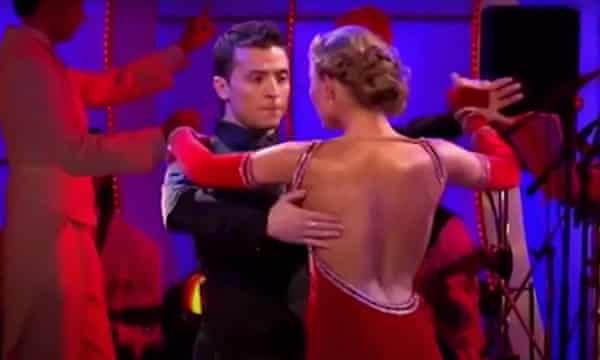
In 2003, Kvartal 95 was established as an independent production company, making TV shows and films for Ukrainian and Russian-speaking audiences. The project got a boost when Zelenskiy won Ukraine’s Dancing With the Stars in 2006, performing with his professional partner, Alena Shoptenko. She is still one of the 196 people he follows on Instagram. (He has 13.4 million followers.) Highlights included a jive to Blue Suede Shoes, with Zelenskiy giving it the full pink-satin-jumpsuited Elvis, a pencil moustache for a tango to Big Spender, a blindfolded rumba to Sting’s The Shape of My Heart and a quirky American smooth dressed as Charlie Chaplin. His performances were energetic and all-in – and he was super-fit. This was – and is – clearly important to him: until he became president, he would regularly post videos on social media from the gym, or swimming, or jogging in New York.
His screen work grew. In 2008, he played Igor, a Russian dentist living in New York, in Love in the Big City. Igor is one of three friends suddenly struck impotent, who must then find the path to true love in order to regain their virility. (It is easy to react disparagingly to this, but the film made $9m at the box office and it is fair to say that Steve Carell’s The 40-Year-Old Virgin is not too dissimilar in tone.)
Two sequels followed. In Office Romance: Our Time (2011), he played Anatoly, a financial analyst with a difficult boss. In trying to get promoted, he ends up falling in love with her, after many shenanigans involving a cable car, a motorbike and other, er, vehicles for physical comedy . . .
MORE >>
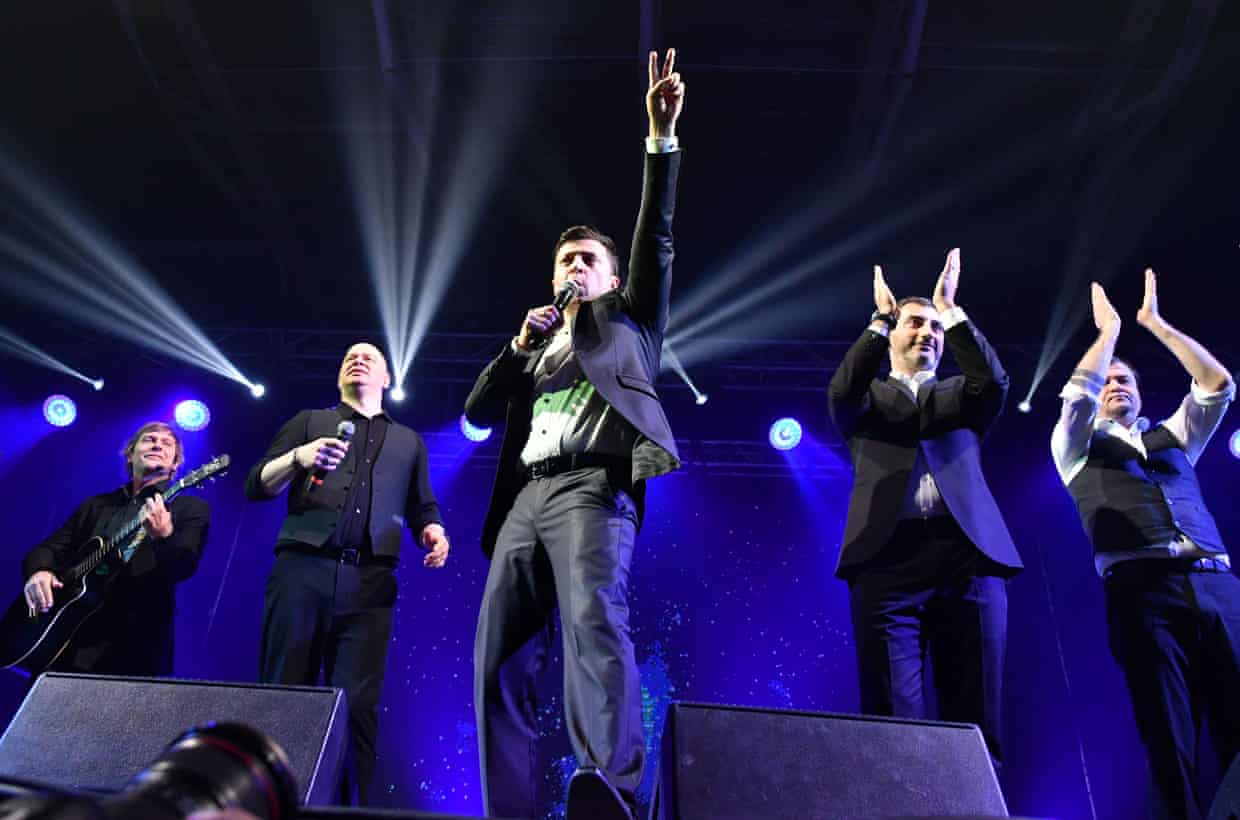
The trump card evident now, though, is Zelenskiy’s status as a team player. In his speech to the Russian people last week, he asked them to question official propaganda. Why would he support a war that targets cities he knows and loves? “To shoot who? To bomb what? … Lugansk? The home of my best friend’s mother? The place where his father is buried?”

The best friend he is talking about is Yevgeni Koshevoy, known as “Lysy” (Baldy – you can see him dancing in the Beyoncé video), whose family are indeed from Lugansk. The pair have worked together for 18 years and shared the stage in the spring of 2014 when the Kvartal 95 troupe performed to soldiers on the frontline when the war began in Donbas. Koshevoy once said of this time: “People told us they were smiling at our jokes – smiling for the first time in weeks – that night.”

No comments:
Post a Comment